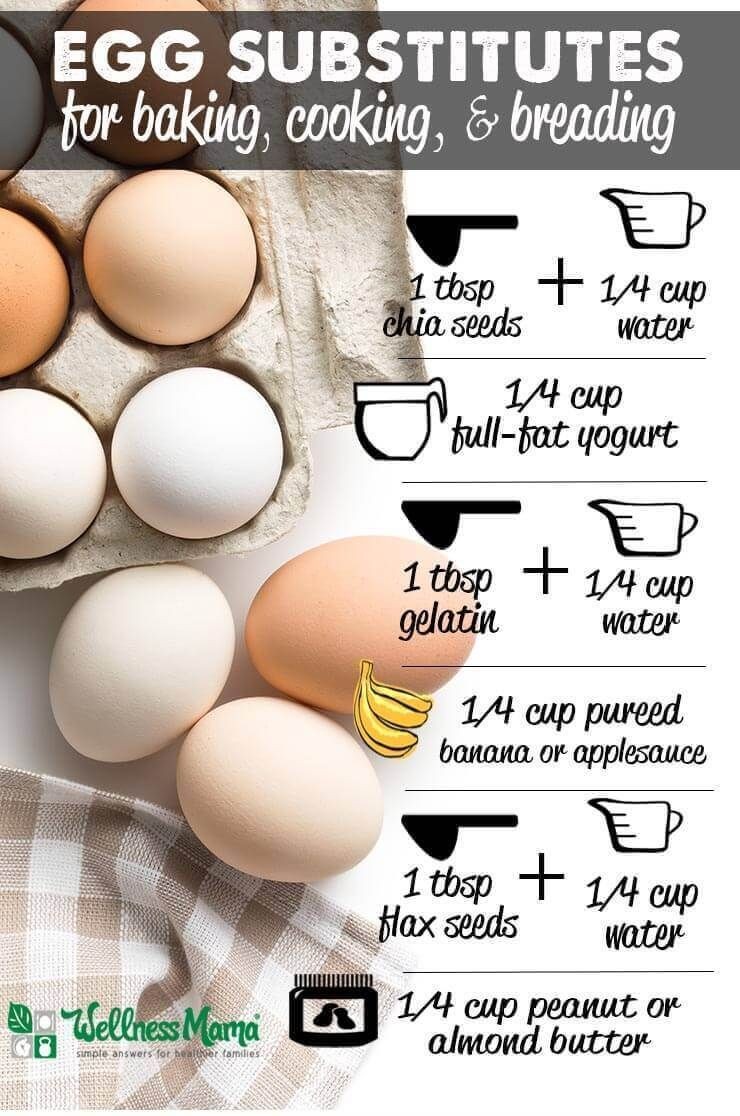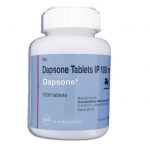
Contents
Egg Substitutes: 15 Alternatives for Cooking and Baking
Eggs are a popular breakfast food, a protein-packed snack, and a common ingredient in baking, but not everyone can eat them. Egg substitutes include flaxseeds, bananas, egg replacer, and other foods.
Eggs are a popular breakfast food, a protein-packed snack, and a common ingredient in baking, but not everyone can eat them. Fortunately, there are plenty of alternatives you can use no matter what you’re making in the kitchen.
Before you start replacing eggs in recipes, understand their role. They emulsify ingredients, bind them together, keep food moist, and contribute to browning baked goods.
- Emulsifying ingredients. Eggs have molecules that stick to both water and oil, which stops mixtures like mayonnaise from separating.
- Binding ingredients together. Eggs act as edible glue, helping to hold the shape of meatballs and sausages, and stick poppy seeds to bagels.
- Keeping food moist. The proteins in eggs lock in moisture, preventing baked goods from drying out and going stale quickly.
- Browning baked goods. Eggs create a chemical reaction that gives baked items their golden brown color.
Why replace eggs?
Egg allergies are common and can cause a range of symptoms, from rashes to life-threatening anaphylaxis. Other people avoid eggs to lower their cholesterol intake or adhere to a vegan diet.
No matter the reason, there are substitutes that work for everyone, including fruits, vegetables, and interesting options like aquafaba and agar powder.
Banana to silken tofu
1. Banana
Bananas work well in moist, dense recipes like muffins and brownies. Their high fiber content keeps food moist. Substitute ¼ cup of mashed banana for one egg.
2. Aquafaba
Aquafaba is the liquid from cooking legumes. It contributes to browning and emulsification. Substitute 1 tablespoon of aquafaba per egg yolk, 2 tablespoons per egg white, and 3 tablespoons per whole egg.
3. Applesauce
Applesauce works well in sweet treats, like waffles and brownies, as a binder. Use ¼ cup of unsweetened applesauce to replace one egg.
4. Avocado
Avocados add moisture and act as a binding agent. They work well in brownies and savory dishes like fritters. Replace each egg with about ¼ cup of mashed avocado.
5. Silken tofu
Tofu has a soft texture and helps brown baked goods. It’s best used in recipes with a raising agent. Use ¼ cup of silken tofu per egg, blended for a smoother texture.
Flaxseed to nut butter
Flaxseed is mild and works well in hearty recipes. Combine 1 tablespoon of flax meal with 3 tablespoons of water, let it thicken, then use as a 1:1 replacement for eggs.
7. Chia seeds
Chia seeds have a milder taste and can be used in sweet and savory recipes. Combine 1 tablespoon of chia seeds with 3 tablespoons of water, let it thicken, then blend for a smoother texture.
8. Yogurt
Plain yogurt reacts with baking soda and adds lift to baked goods. Use ¼ cup of plain, unsweetened yogurt for each egg.
9. Carbonated water
Carbonated water adds moisture and prevents dense texture. Substitute ¼ cup of carbonated water for each egg.
10. Nut butter
Nut butter adds moisture and acts as a binding agent. Use about 3 tablespoons of creamy nut butter to replace one egg.
Arrowroot powder to egg replacer
11. Arrowroot powder
Arrowroot powder is a natural thickener. Combine 2 tablespoons with 3 tablespoons of water to replace one egg.
12. Xanthan gum
Xanthan gum is a natural thickener. Use 1 teaspoon to replace each egg.
13. Agar agar powder
Agar agar powder is a plant-based gelatin substitute. Dissolve 1 teaspoon in 1 tablespoon of warm water and use to replace one egg.
14. Pumpkin puree
Unsweetened pumpkin puree can be used in sweet treats. Use ¼ cup to replace one egg.
15. Egg replacer
Store-bought vegan egg replacements can be used in many recipes. Follow the instructions on the package.
Substituting eggs is easy
Not everyone can eat eggs, but there are many alternatives available. Some work best in savory dishes, others in sweet treats, some in dense foods, and others in fluffy pastries. Experiment to find what works best for your recipes.
Sources:
Advances in Nutrition, Autoimmune Protocol Recipe Collection, Best Food Facts, Cleveland Clinic Health Essentials, The Good Food Institute, The Journal of Allergy and Clinical Immunology, Kids with Food Allergies, Meatless Monday, On The Gas, T. Colin Campbell Center for Nutrition Studies, The World’s Healthiest Foods


